Animals
-
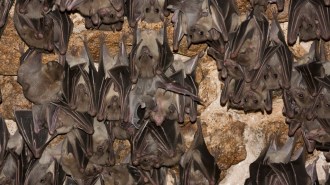 Animals
AnimalsBats live with some viruses. But others can do them in
Bats can carry some deadly human pathogens without signs of illness. A new survey shows that other viruses can still be bad for bats.
-
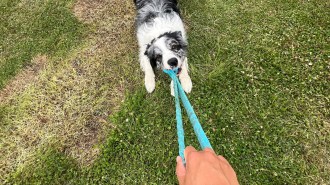 Animals
AnimalsTug or fetch? Some dogs sort toys by how they are used
Dogs that easily learn the names of toys might also mentally sort them by function, a new example of complex cognitive activity in the canine brain.
-
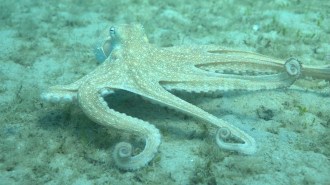 Animals
AnimalsOctopus arms are adaptable but some are favored for particular jobs
Octopuses are ambidextrous, a new study finds, but they favor their front arms for investigating surroundings and their back arms for locomotion.
By Jake Buehler -
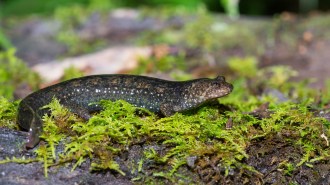 Animals
AnimalsJust like humans, many animals get more aggressive in the heat
From salamanders to monkeys, many species get more violent at warmer temperatures — a trend that may shape their social structures as the world warms.
-
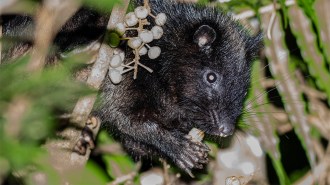 Animals
AnimalsTiny thumbnails may be key for rodents’ global takeover
Thumbnails might have boosted rodents’ food-handling skills, helping them thrive worldwide.
- Animals
Here’s how fruit flies’ giant sperm squeeze into tight spaces
Researchers found that fruit fly sperm push against one another and align in orderly bundles, preventing knots that could block reproduction.
By Meghan Rosen -
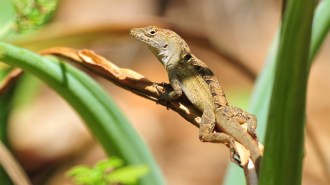 Animals
AnimalsThis lizard can tolerate extreme levels of lead
Cuban brown anoles have the highest blood lead levels of any vertebrate known — three times that of the previous record holder, the Nile crocodile.
By Meghan Rosen -
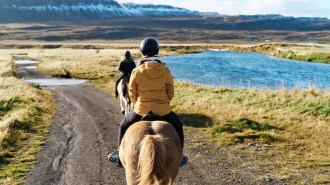 Life
LifeHorses may have become rideable with the help of a genetic mutation
To make horses rideable during domestication, people may have inadvertently targeted a mutation in horses to strengthen their backs and their balance.
By Jake Buehler -
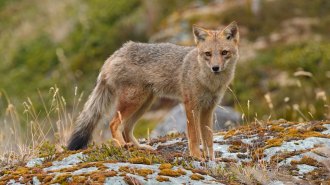 Animals
AnimalsThe mysterious, extinct ‘Fuegian dog’ was actually a semi-tame fox
Historic European accounts long described the canids as domesticated dogs. A new study suggests that’s probably not true.
By Jake Buehler -
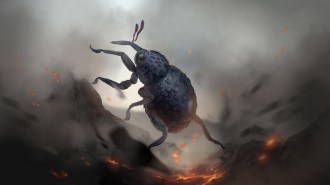 Animals
AnimalsThe phoenix isn’t the only critter to survive the flames
There are no real phoenixes hiding anywhere. But science has revealed that some living things can take quite a bit of heat.
-
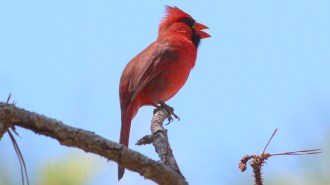 Animals
AnimalsAround the world, birds sing longer in light-polluted areas
In light-polluted landscapes, birds' singing time is an average of 50 minutes longer per day. It's still unclear if this hurts bird health or helps.
By Jake Buehler -
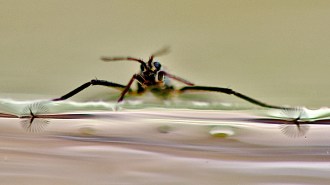 Animals
AnimalsFrilly bug feet inspire a water-striding robot
Ripple bugs’ nimble movements on the surface of water inspired a robot with automatically unfurling fans on its feet.